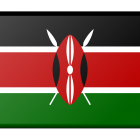Country Facts
Capital
Nairobi
Size
224,100 sq miles
Time Zone
Nairobi, Kenya (UTC+3)
Population
54 000 000
Currency
Kenyan Shilling
Kenya: Paradise Awaiting To Be Explored
Welcome To Kenya
Here are just few reasons why to visit Kenya:
Kenya – True Africa Experience
You can trace the beginning of Kenya Tourism in the early 1930s, during this era when Kenya was under British Colonial rule, the very first wildlife Safaris on the African continent were taking place in the country, more in the form of expeditions into the unexplored wilderness, teaming with magnificent wild animals. Today, Kenya is the home of the Safari package, a destination where you can experience seeing an animal paradise in truly amazing places such as Masai Mara and Amboseli.
Blessed with breathtaking landscapes, a friendly local population, pleasant all year round weather and the rich collection of wildlife, it is little surprise then that Kenya Tourism offers one of the most desired travel experiences in the world. Travelers considering visiting Kenya have many questions regarding their trip, from the best month to visit to which places to go to and how to plan a Kenya Safari and we are here to plan and provide the best bespoke holiday for you!
Get inspired!
At The Earth Trip we have a team of professionals with considerable knowledge and first-hand expertise in putting together tailor-made arrangements for the places you are planning to visit on your Belize holiday.
We would be delighted to discuss your plans and design a personal Kenya holiday itinerary according to your own particular needs. On the ground in Kenya we have a team of experienced, English-speaking guides with a wealth of detailed knowledge and we have appointed a local ground agent in each country to represent us and to look after our passengers locally.
The Earth Trip: a personal service and value for money from the experts.
Preparing For A Trip To Kenya?
Visa Information / Entry requirements – Kenya
This page reflects the UK government’s understanding of current rules for people travelling on a full ‘British Citizen’ passport from the UK, for the most common types of travel.
The authorities in Kenya set and enforce entry rules. If you’re unsure how Kenya’s entry requirements apply to you, contact its UK embassy, high commission or consulate.
All travellers
All travellers to Kenya over 12 years of age will be, at all ports of entry, required to show proof of either COVID-19 vaccination or a negative COVID-19 PCR test conducted no more than 72 hours before departure.
Those travellers with no proof of vaccination or a PCR test, or with flu-like symptoms, will be required to undergo a rapid antigen test at their own cost of 30 USD. Those who test positive on antigen RDT will be required to take a PCR test at their own cost of 50 USD and self-isolate as per Ministry of Health guidance on isolation.
Any traveller entering Kenya with flu-like symptoms will be required to fill the passenger locator form on the ‘jitenge’ platform: https://ears.health.go.ke/airline_registration/ and to undergo a rapid antigen test at their own cost regardless of age or vaccination status. If the antigen test is positive, they will be required to undergo a COVID-19 PCR test at their own cost.
See Exemptions below for more information for unvaccinated travellers.
Travellers below the age of 12 years shall be exempt from the requirements of a vaccination certificate or Pre departure PCR test.
Full details of the Government of Kenya’s entry requirements in relation to coronavirus can be found on the Kenya Civil Aviation Authority website.
If you’re fully vaccinated
Most adults require a full dose of a COVID vaccine to enter Kenya.
The vaccine must be approved by the World Health Organisation.
Proof of vaccination status
You must present proof that you have been fully vaccinated to enter Kenya. Vaccination means having received the prescribed doses of specific vaccine latest shot at least fourteen (14) days before arrival (not including the day of vaccination).
Kenya will accept the UK’s proof of COVID-19 recovery and vaccination record and proof of COVID-19 vaccination issued in the Crown Dependencies. Your NHS appointment card from vaccination centres is not designed to be used as proof of vaccination and should not be used to demonstrate your vaccine status.
You can also upload your certificate of vaccination to the Global Haven website.
Some airlines may request that British travellers show proof of vaccination on the NHS App at check-in.
If you’re not fully vaccinated
Unvaccinated individuals must show a negative COVID-19 PCR test conducted not more than 72 hours before departure.
Children and young people
Children under 12 do not need a negative PCR test or proof of a COVID-19 vaccination to enter Kenya.
Check your passport and travel documents before you travel
Passport validity
If you are visiting Kenya, your passport should be valid for 6 months from the date you arrive.
You should have at least two blank pages in your passport on arrival.
Check with your travel provider to make sure your passport and other travel documents meet their requirements.
Visas
You need a visa to enter Kenya. Kenyan entry visas are exclusively issued electronically, with passengers required to obtain their e-visas before departure. You can apply for single entry and transit visas on the e-visas website.
British passport holders visiting Kenya aged 16 and over require a valid individual visa for Kenya.
For more information, see the website of the Kenyan High Commission in London.
Returning to the UK
If you are 18 or over, you will be required to show proof of a COVID-19 vaccination to leave Kenya, unless you have a letter from a medical practitioner confirming your exemption from COVID-19 vaccination. The vaccine must be approved by the World Health Organisation.
You will also be required to show compliance with entry requirements for the UK and any transit countries.
You can use the UK’s proof of COVID-19 recovery and vaccination record to demonstrate your vaccination record when leaving Kenya.
Read More On Visas
Tourism Health Information – Kenya
If you have a health condition, or you are pregnant, you may need specialist healthcare abroad. Check whether your destination country can provide the healthcare you may need and ensure you have appropriate travel insurance for unexpected medical evacuation or local treatment.
See the Coronavirus travel health and Healthcare sections in the Coronavirus page for COVID-19 health information.
At least 8 weeks before your trip, check the latest country-specific health advice from the National Travel Health Network and Centre (NaTHNaC) on the TravelHealthPro website. Each country-specific page has information on vaccine recommendations, any current health risks or outbreaks, and factsheets with information on staying healthy abroad. Guidance is also available from NHS (Scotland) on the FitForTravel website.
On 3 March 2022, Kenya’s Ministry of Health confirmed an outbreak of yellow fever in Isolo county. Other counties at high risk of transmission following this outbreak are: Wajir, Garissa, Marsabit, Meru, Samburu, Baringo, Elgeyo Marakwet, West Pokot and Turkana counties. You should discuss yellow fever vaccination with your health advisor before you travel to Kenya.
General information on travel vaccinations and a travel health checklist is available on the NHS website. You may then wish to contact your health adviser or pharmacy for advice on other preventive measures and managing any pre-existing medical conditions while you’re abroad.
The legal status and regulation of some medicines prescribed or purchased in the UK can be different in other countries. If you’re travelling with prescription or over-the-counter medicine, read this guidance from NaTHNaC on best practice when travelling with medicines. For further information on the legal status of a specific medicine, you’ll need to contact the embassy, high commission or consulate of the country or territory you’re travelling to.
While travel can be enjoyable, it can sometimes be challenging. There are clear links between mental and physical health, so looking after yourself during travel and when abroad is important. Information on travelling with mental health conditions is available in our guidance page. Further information is also available from the National Travel Health Network and Centre (NaTHNaC).
Medical treatment
Make sure you have adequate travel health insurance and accessible funds to cover the cost of any medical treatment abroad and repatriation.
If you need emergency medical assistance during your trip, first deal with the emergency with first aid skills if possible and then move onto the nearest, largest Accident and Emergency department. In Nairobi this is either Nairobi Hospital or the Aga Khan University Hospital.
Read More On Health
Weather & When To Go To Kenya
Kenya’s altitude ranging from sea level to 5,199 meters (about 3.23 mi), makes its climate vary from high humid temperatures of the coast (83F) to the often cold and wet regions of Aber dares, Cherangany and Mau Escarpment, Mt. Elgon, and the freezing points at the top of Mt. Kenya.
With the Equator traversing the country, there are not four seasons as in Europe but two rain seasons at the same time of the year – the long rains from the end of October through December. The rains fall in short heavy downpours or violent storms preceded by heavy black clouds as a warning. Sunshine is experienced throughout most days of the year although it becomes cooler during the months of June, July, and August.
Nairobi, the capital city, often referred to as the city in the sun, has an average daily temp. of 21.1’C (70’F) and Mombasa, the second largest town in the country and situated at the coast has an average temp. of 26’C (80’F). There are no closed seasons for visitors though the peak rainy season is considered low tourist seasons.
Kenya is a year-round safari destination, with excellent game viewing throughout the year, although the best time to visit is during the dry season from January to March and July to October when wildlife spotting is easier as the bush is thin, and animals tend to gather around waterholes and riverbanks. Many travelers’ visits Kenya to witness the great wildebeest migration in the Maasai Mara, which coincides with the second dry season from July to October. Although due to varying rainfall patterns, the timing does vary year to year.
Kenya experiences mildly distinct weather patterns, with four main seasons. January to March is hot and dry, then April to June the climate becomes hot and wet with the arrival of the ‘long rains.’ This is followed by a warm and dry period from July to October, before the ‘short rains’ and warm and wet weather is observed in November and early December. The presence and the absence of rain affects vegetation and water sources thus affecting movement and concentration of animals in different National Parks and Reserves. Therefore, while making your plans to visit Kenya you may want to factor in the climate, the wildebeest migration and seasonal change in price to meet your expectations.
Read More On Weather
Tailor-Made Holidays
At The Earth Trip we will design and plan your personalised itinerary according to the exact requirements of your trip. Whether you prefer to be on a mountaintop or under a waterfall; wake up in the middle of a jungle or have a picnic with locals in the tea plantations – we select the accommodation and activities in order to suit not only your preferences, but also your budget.
Discover Tailor-Made








 About
About